Alagi Yorro Jallow
There comes a time when the rhetoric must stop and the need for work becomes apparent. It becomes crucial for executive probity and nationhood to fight corruption, police brutality, governing by bestiality, and mistreatment of Gambians in a democratic society.
For nearly two years, President Barrow shouted his ‘tigritude’ from the rooftops. However, it is now time to pounce¾not least because legacy hinges on it, but because it is the only decent response to fighting corruption, insecurity, youth unemployment, bureaucratic incompetence, and economic paralysis—the pillars of President Barrow’s regime. Today, the country cries out for action, seeking practical measures to guarantee economic and social policies that are responsive to people’s needs and aspirations, that aim at eradicating poverty, and citizens become commanders of their own destiny.
After almost two years, half-measures are harming the country and tormenting poor and middle-class Gambians. Among other challenges, President Barrow creates projects the image of merely a reluctant leader, one who enjoys the trappings of office, but is not ready to do the work necessary to be there.
Instead of providing leadership, President Adama Barrow and his lieutenants¾the Vice President, Cabinet staff, and some National Assembly members—have adopted a default campaign mode of regaling the public with tales of largesse to come.
There is much being written about the silence from most members of the government to this latest outrage, widespread corruption, communal violence, “biological annihilation” of the environment and human rights violations. Indeed, there is an outrage encompassing the others; there, in black and white, there is an outline of a monarchy, not a republic. However, my inner compass suggests that, while we have not seen a backlash from President’s government, this is going too far, far too far, for most Gambians. And that pressure cannot be checked forever, at the ballot box or in the streets.
The Gambia is a nation of laws, not of kings. Our stated creed is that we are all equal before the law¾all of us. Of course, we fall far short of that ideal in many ways. It is usually the poor, the marginalized, and dispossessed who suffer the greatest injustices. Nevertheless, even the most cynical of plutocrats in our nation’s history have at least largely paid lip service to this ideal.
President Barrow’s legal rationalizations are chilling. Frankly, one might go so far as to say they are un-Gambian. These rationalizations communicate a complete disconnect from our constitutional government and, thus, are themselves an act of betrayal.
Gambians have acknowledged that it has been a challenging time for many leaders around the world, resulting from global economic upheavals and corruption wreaking havoc worldwide. However, Gambians reject President Barrow’s inaction and negligence with which his government has responded to corruption allegations. We need not recount the numerous losses incurred by government and businesses, in addition to the opportunities wasted for thousands of Gambians due to political patronage and executive myopia. Worse, it appears that President Barrow is held captive by forces from which he cannot disentangle himself. He swore to promote the national good. However, what holds him hostage and prevents him from fighting corruption within his administration?
Most Gambians are of the view that three or five years is too long to live on hopes and promises to finally fix the fundamentals of statehood. Why is President Barrow not committed to fighting corruption and political racketeering in his government? Nothing has come of President Barrow’s extraordinary Executive Order issued last year for all cabinet ministers to declare their assets and liabilities, including himself. Further, not a single Gambians has access to that information, which remains sealed at the Ombudsman office. President Barrow always makes promises that he cannot keep.
Karl Kraus, writer, essayist and satirist, publicly denounced the act of official corruption; he reviled its actions and symptoms as of the main causes of moral and political bankruptcy. Karl Kraus also decried corruption at any level with savage indignation, an intensity of irony and paradox, that “Corruption is worse than prostitution. The latter might endanger the morals of an individual; the former invariably endangers the morals of the entire country.” Corruption is at the root of slavery, unemployment, and disregard for nature and the common good. Pope Francis said, “Say NO to Corruption.” The pope said, “Corruption is a process of death that feeds the culture of death,” adding that, “the thirst for power and possessions knows no limits.”
The key to fighting corruption is not to remain silent because doing so only strengthens criminal organizations; instead, it must be contrasted with justice and beauty, the Pope stated, adding, “Corruption is not countered with silence.” President Barrow must speak about it, denounce its evils, and try to understand it, to show his government’s resolve to fight the evil of corruption.
This theory of the President being a lame duck without the ability to crack down on corruption within his government is a myth. The argument about letting “institutions do their work” is only valid as far as legal arguments go. President Adama Barrow has constitutional and enormous residual powers as President to act on corruption and racketeering. Further, President Barrow has always had his way as he so chooses; Adama Barrow has always had his way. He sometimes forced his way. When sworn in as president, Barrow selected and replaced the top army, intelligence, and police command, at his pleasure, with complete authority of the law at the first instance. He has had all his cabinet appointments, civil service, board members, directors of parastatals, and top diplomatic positions¾including incompetent ones¾under his authority.
President Barrow, on many occasions, has dictated the legislative agenda and other public policy issues from State House. Under this government, activists and protesters who occasionally bruise the overinflated egos of government officers can be held for days in police custody without bail.
The imagination that President Barrow is not powerful under the constitution is futile. The President is the commander in chief of all the armed forces. The laws governing the police remain unchanged and now he has an Inspector General serving at his pleasure. His constitutional powers include appointing whoever’s name is submitted to him to be appointed as the Director of Public Prosecutions, a key office in the process of criminal punishment. Adam Barrow has a bird’s eye view over Gambia.
President Adama Barrow is the exclusive receiver of daily-classified intelligence from the State Intelligence Service. President Barrow knows who is doing what, when they do it, and where. If he had a reason to seek out such information, he would know where any Gambian slept yesterday. He can hire and fire Cabinet ministers at his pleasure. His soft and political power is enormous. He is a scion of lawyer Ousainou Darboe, leader of the United Democratic Party and influential foreign minister in the Tactical Alliance government, a cunning political operative who massively campaigned for a strong majority in the National Assembly and in the local government elections.
President Adama Barrow promised something better on the campaign trail. Amidst the tribalism, dog whistles, and the crude rhetoric was a promise that he would be a pragmatic politician looking out for regular people. What we have now, however, is a man who would be king. Further, the institutions of our government, our courts, our system of states, our free press, and our voters, are not going to abide by it. Gambians feared such a man; they knew the tyranny of the dictator and chose to rebel through the ballot box. These people set out to establish a democratic order, built to ensure another dictatorship would never happen on these shores.
These are the stakes, and the people sense there is much fight out there amongst a populace intent on making sure Gambia remains a nation of laws.
The question is this: why can the President not act on corruption and political racketeering? Why can he not apply the levers provided by the constitutional, political, and personal soft power to weed his government of these corrupt maniacs on steroids, irrespective of rank, who are busy stealing money from indigent farmers? Why do the citizens not target these corrupt men and women, regardless of their stature, and lock them up in Mile 2 Central Prison? Why do they not move them to solitary confinement at Jesuwang Prison and drive them overnight on the back of a Toyota Land Cruiser, only to charge them at the Kanifing Court to ensure they are remanded without bail for a few weeks just to prove a point? Gambians cannot sit back and cheer when the very pillar of nationhood threatens our very sustenance.

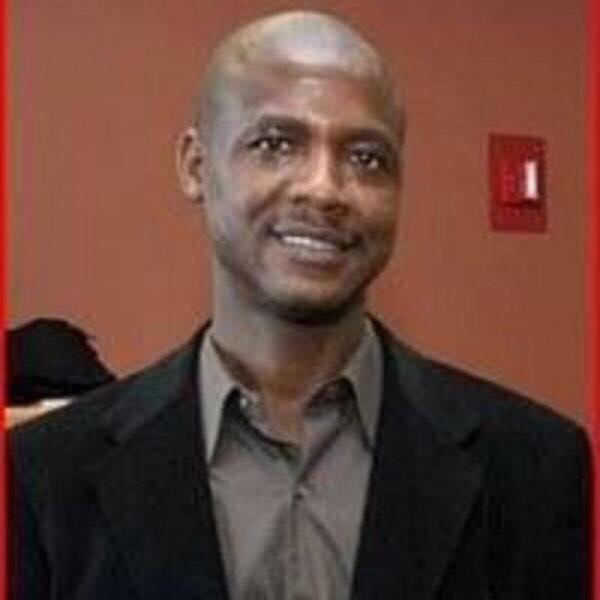
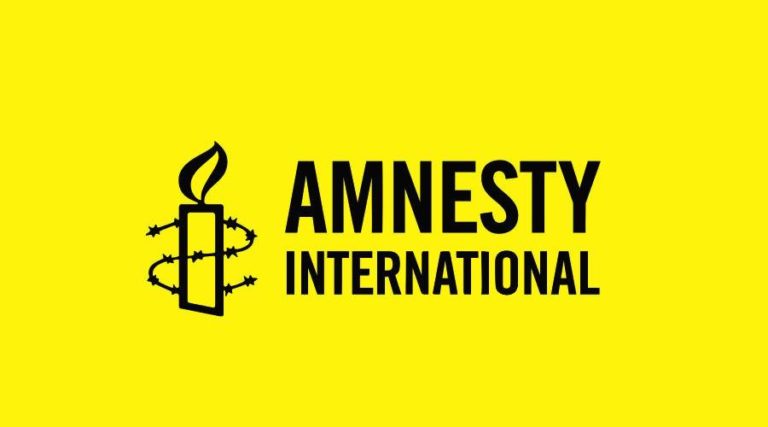
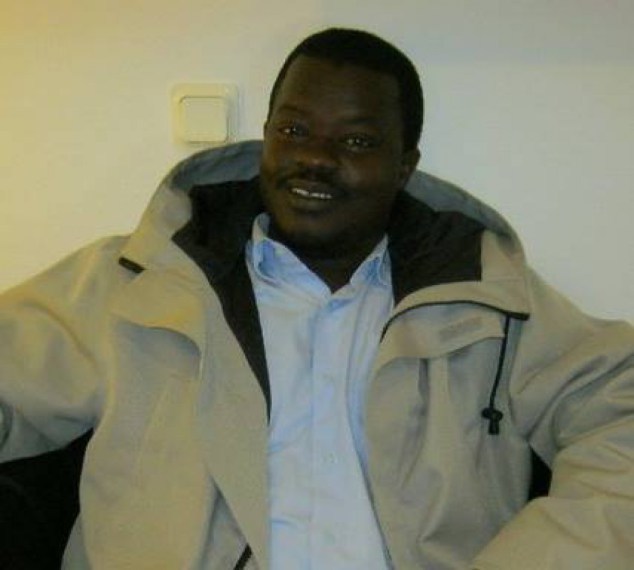
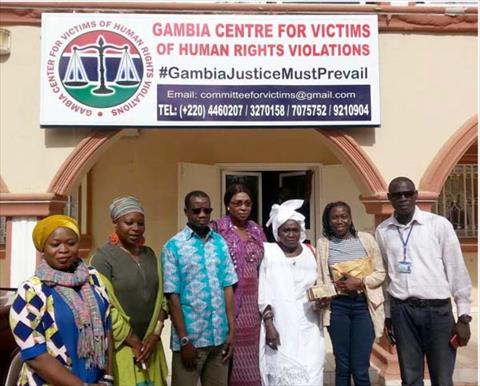
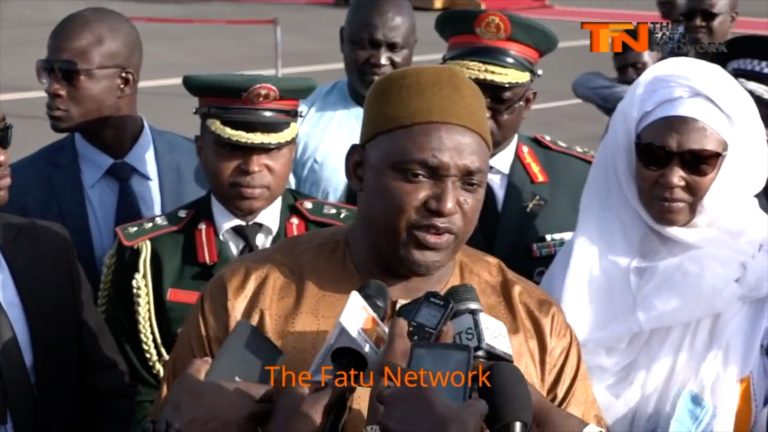

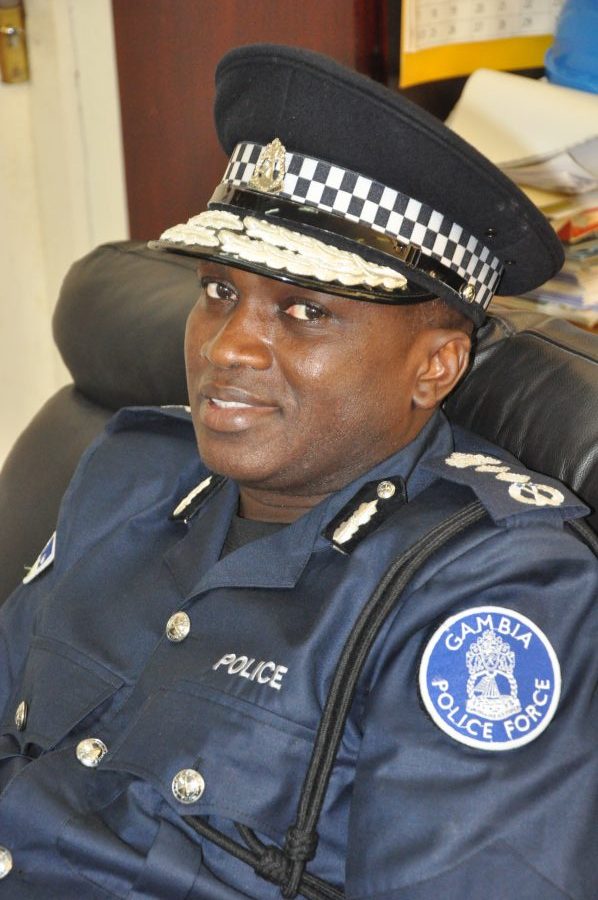

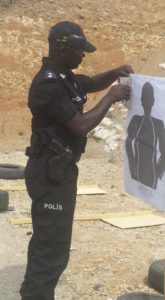
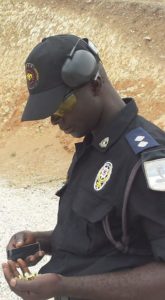
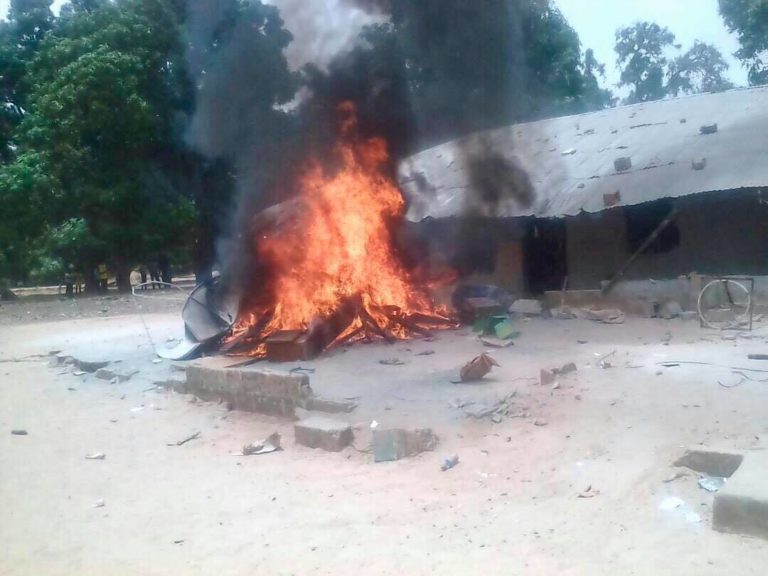
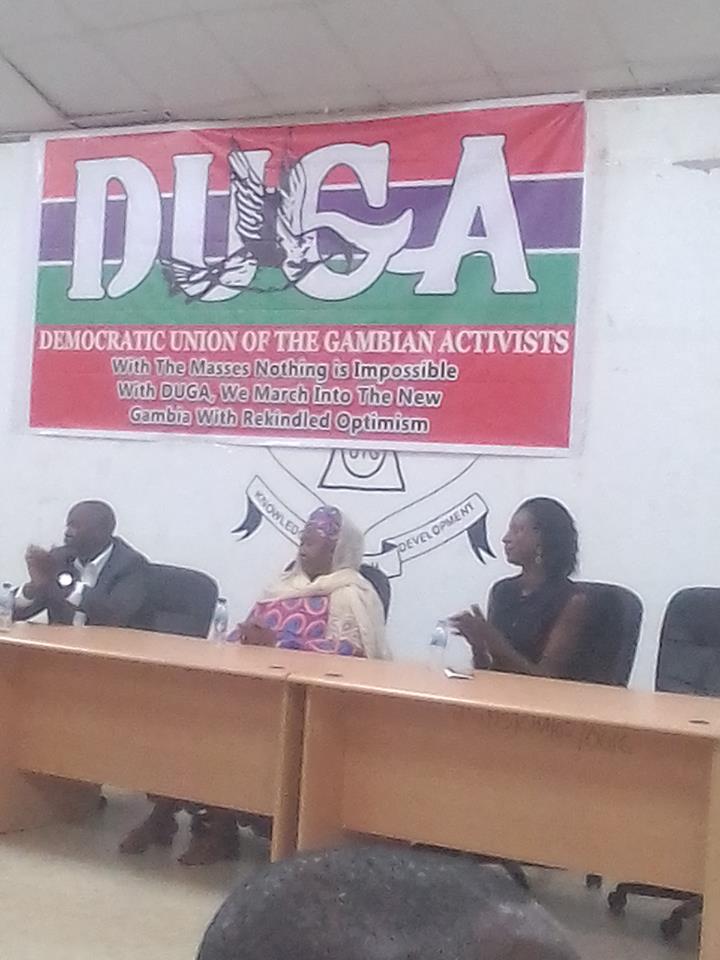

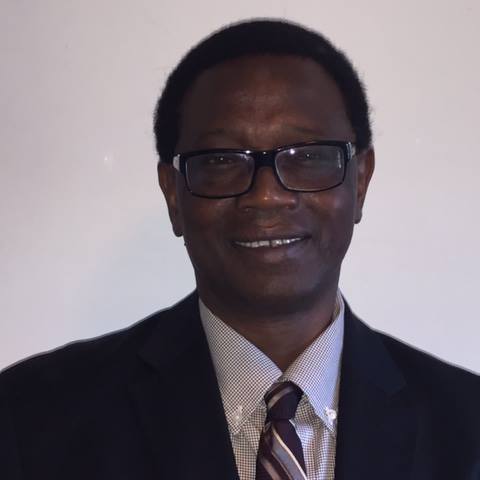
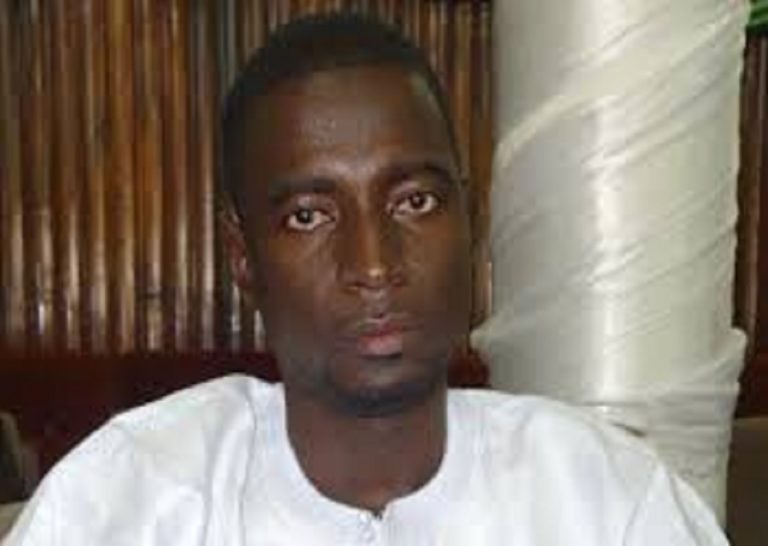

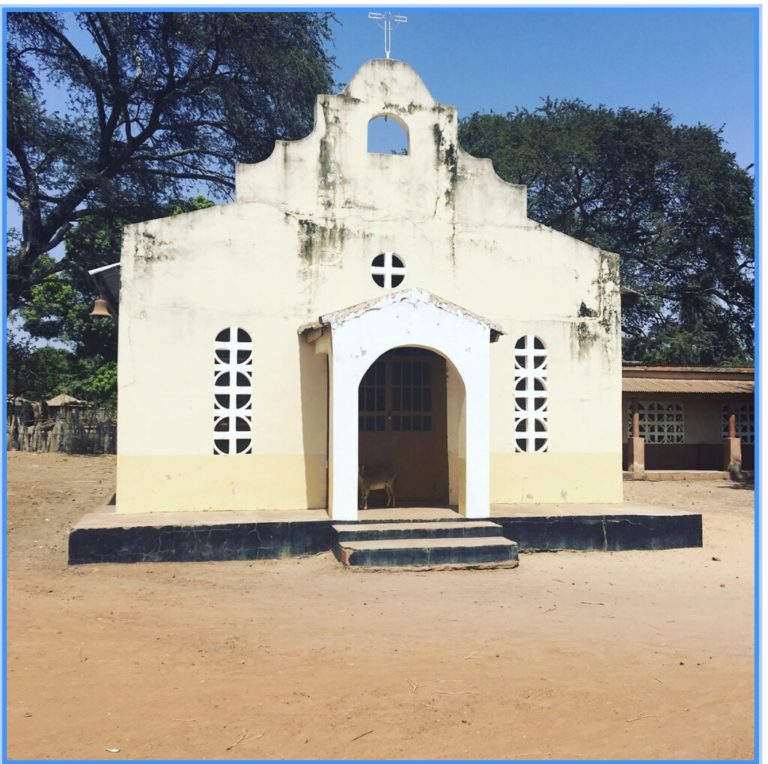
Separation of Powers
By, Gibril Saine
The principle of ‘separation of powers’ denotes division of political power of the state into three (3) distinct branches of government – legislature, executive and judiciary. Put simply, that means the splitting of government responsibilities into a power-sharing arrangement so that no one single branch may exercise total control. In the United States, it is a fundamental pillar of the democratic process in the operability of governance functions. The idea here is such that each one of the three arms of government has some measure of influence over the other two. A leverage, however imbalanced, is created thus a check & block on policy & executive conduct deem unlawful.
In the Gambia – the executive branch consists of the president, cabinet ministers, regional governors, the security apparatus of state & various bureaucracies attached to it. Although it proposes laws, the executive cannot make them. The law-making power of state is strictly reserved for parliament engaged in smart debate to amend, adopt or reject proposals all together. This shows the power of an ‘independent’ parliament, that each member of the legislative branch may initiate a ‘bill’ touching on every aspect of our lives, from taxation, trade, defence, policing, extractive industries, international agreements among others. The final bolt to the power triangle is the Judiciary, consisting of a supreme court being the highest court in the land. The function of the Judiciary is to interpret the law as stipulated in the constitution through wise judges, judgements & discretion. It may also act as a bridge between the legislature and executive branch to resolve disputes on contentions of the law – and to oversee trial in an impeachmentproceeding against a sitting president on charges of malpractice, incompetenceor abuse of political office – unchartered territory for Gambia, what a lesson to learn and discern:
The concept of checks and balances is a direct consequence of separation of powers. In other words, it is two sides of the same coin, hence one cannot stand without the other, or democracy may falter. It is a distinguished feature of prosperous democracies around the world, and a yardstick upon which good governance indicators are measured. For Gambia to be classed a true democracy, each of the three organs of government must exercise oversight on the actions of the other two. Such overlapping of power is what is referred to as checks and balances – enhancing transparency & leverage within the system.
In British politics, parliamentary systemof democracy resides designed on ‘fusion of powers’ typology premised on collective responsibility. To young students out there, that means members of cabinet (ministers) also sit in parliament to debate and defend government position on issues; introduce new ‘bills’, that cabinet ministers are expected to agree on policy decisions, ‘bite-your-tongue’ or resign. And resign they do from time to time, on principle or ethical grounds. The case of former foreign minister, Robin Cook, came to mind who resigned refusing to agree on the Blair government’s stance on the Iraq war. How rightful he really was! And what a credible man indeed he was – a principled man indeed.
Appearing on #FatuRadioNetwork, the leader of opposition GDC political party, honourable Mama Kandeh, spoke on the state-of-affairs thus far, under president Adama Barrow. The man does care for Gambia, a skilful politician, charitable towards the poor. Previous differences and concern about ‘Kandeh’ are long gone, for he has demonstrated competence. One thing for sure, a supposedly ‘president Kandeh’ will not devise a youth movement, for Gambia already boasts the ‘national youth council’. He wife won’t start a foundation, for Kandeh likes to move around listen to the needs & concerns of ordinary Gambians. He will not open ‘investment desk’ at State House – but let GIEPAfulfil its remit.
The GDC leaderhad intimated that ‘convicts ought not allow to serve in government’, as scribed in the law-book. I think all conscious-driven Gambians agree to that, calling on the ad hoc panel on constitutional reform to reflect such good texts in the draft. Despite cynicism, one was still taken-aback certain people found time to question Kandeh’s benevolence as ‘politicking’. That is the sad part of the era, I guess, when one won’t even acknowledge tremendous effort just because the adversarial camp sports a different ‘team’?! To be fair, the GDC party leader has the right to step on every inch of Gambian soil fraternise with the people. Although the tradition of democracy is such that one-government-at-a-time, Kandeh was fulfilling the role expected of an opposition – we should encourage more of that, not less!
Still on governmental setup & powerplay, president Barrow is empowered to negotiate treaties, though parliament must approve them before befit binding. He is the commander-in-chief of the armed forces but cannot declare war or take Gambia into conflict without parliamentary approval. The Gambia government is a creation of the people, by and for the people, thus presidential power ought to be in check, watched under permanent scrutiny. That is the sort of democracy under mould by a rising intelligentsia designed under utilitarianism ideology & win-win values.
As a matter of urgency – one urges parliament to summon finance minister ‘Sanneh’ to provide explanation on the ‘excitable’ €1.4 billion donor pledge. It is incumbent upon government to explain terms and conditions on loans/grants pledges pertaining to national debt burden. Foreign minister Darboe ought to be summoned on open borders with Senegal & visa-free arrangements for certain countries without seeking parliamentary approval. The Interior minister must be sanctioned from hiding present a crime report to parliament. And the president himself to be held accountable for failures across government. That is the nature of their job ladies & gentlemen – so parliament do your job!!!
Pleased to report one has been consistent from start articulating the Gambia case & story. Profound gratitude to those exemplary civil servants as teachers & nurses; farming communities, ‘women Kaafoos’ and ordinary folks serving ‘national interest’. We are proud of you all, for a sunny day & style of leadership is on the horizon. It is outrageous that importers keep inflating prices for quick profits at the detriment of every-day consumers. Tell me, why should a bag of rice cost more than D500 if honesty is practiced at the marketplace?! Have you ever stopped to ask why a bag of rice is cheaper in Europe than in the Gambia? The politicians won’t tell you simple TRUTHS, just because … this nonsense will soon be corrected and compensated ‘In Sha Allah’.
My fellow Gambians – there is more to life than money or government job. I urge civil servants to report instances of corruption from the office of the president all the way down to the highwayman at the border-post in ‘Karaang’. Because, if the ‘Singapore’city-state dictum is to materialise, for a transparent, democratic & prosperous Gambia we all desire, the Barrow-government better execute ‘smart power’ in the implementation of its signature ‘national development plan’ – as crime & poverty numbers accelerate for a frustrated public left asking questions.